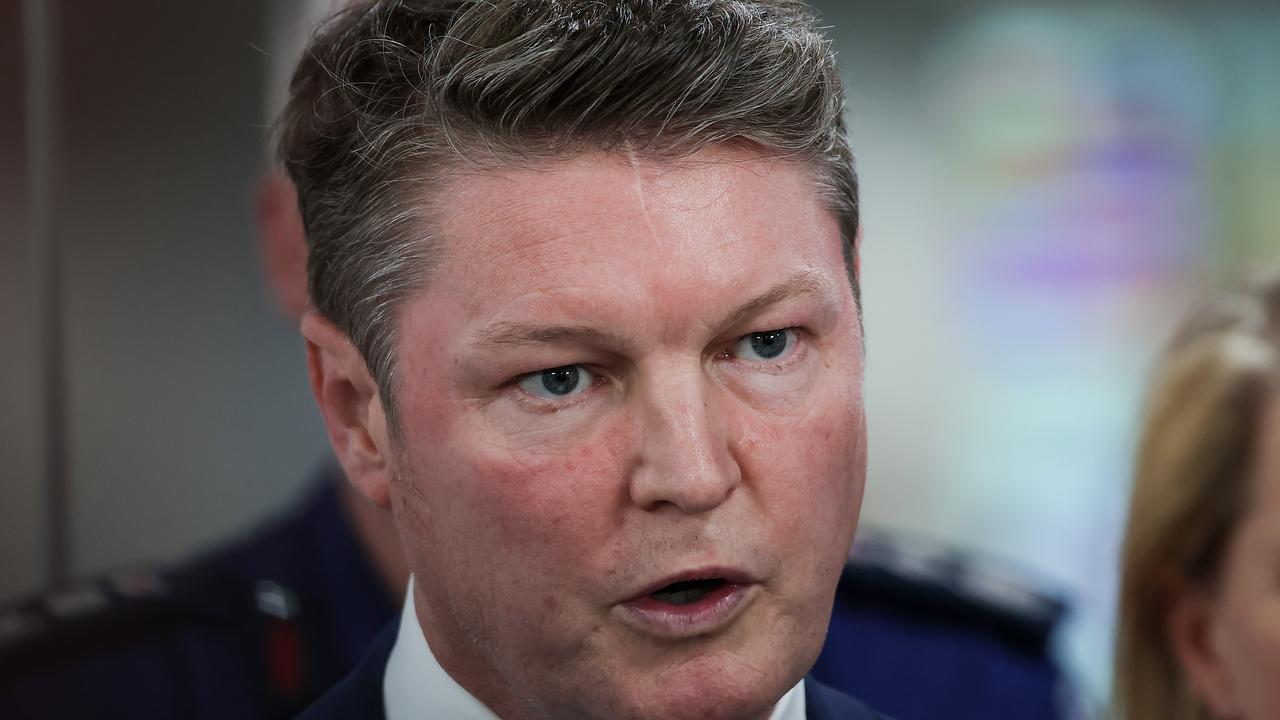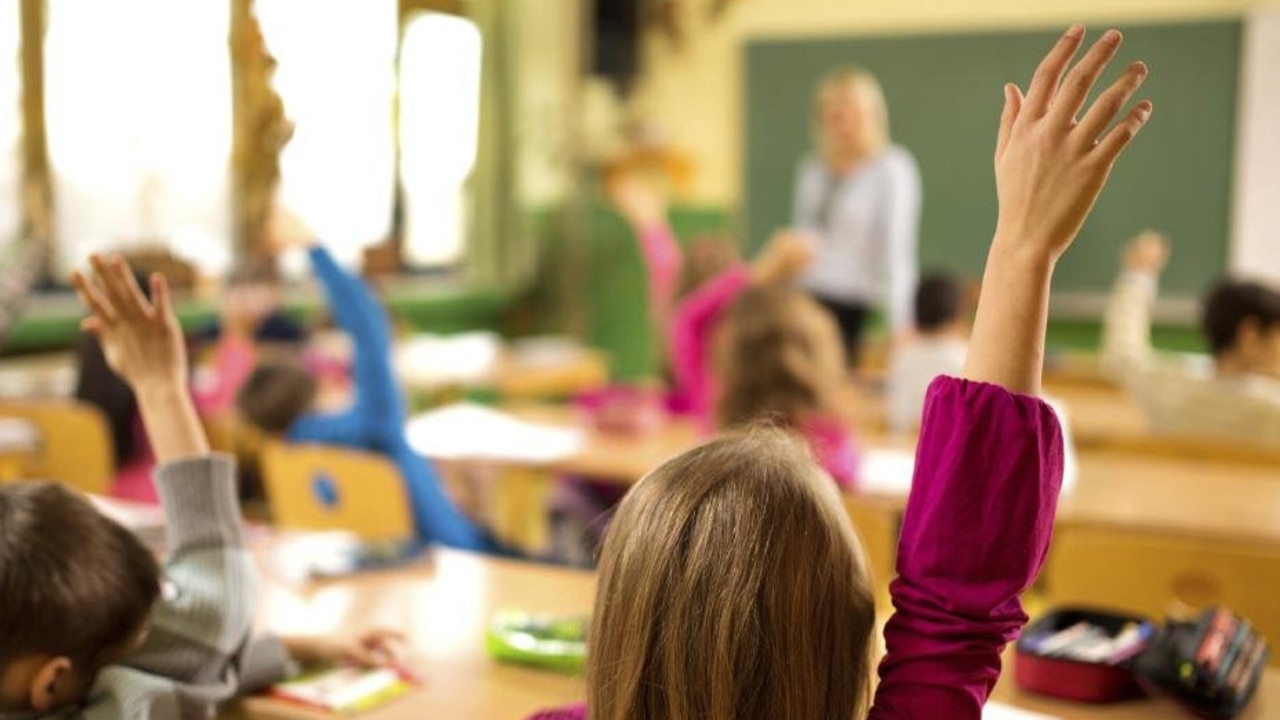Victorian students sink to new lows in English, maths in NAPLAN testing
Almost 300,000 Victorian students are failing to meet basic standards in maths and English, with many struggling to use punctuation such as commas and full stops.

Education
Don't miss out on the headlines from Education. Followed categories will be added to My News.
Victorian students have sunk to new academic lows, with more than four in ten pupils in grades three and nine struggling to use punctuation such as commas, full stops and quotation marks.
Overall, nearly one in three – almost 300,000 students – are failing to meet basic standards in English and maths, sparking calls for a return to back-to-basics teaching and explicit instruction to halt the learning decline.
The results put at risk the chance of Victoria obtaining 2.5 per cent more federal funding – nearly $2b in the next five years – under the federal agreement.
Around $16b in national funds are still under negotiation, and have been tied to states achieving a reduction in the proportion of students who need additional support, among other targets.
However, in Victoria the percentage of students needing additional support has increased – not decreased – in 14 out of 20 learning areas compared to 2023.
In total, 29.2 per cent of students across the state are now either needing additional support or “developing”, up from 28.9 per cent in 2023, stretching to 69 per cent for some equity groups.
Federal Education Minister Jason Clare said the NAPLAN results show “why serious reform is needed and why we need to tie additional funding to reforms that will help students catch up, keep up and finish school”.
At stake is $16b nationally for public schools, available for states who introduce phonics, numeracy checks, evidence-based teaching and catch-up tutoring in order to boost outcomes.
“There are no blank cheques here. I want to invest billions into our public schools and I want to make sure that money makes a difference to the kids who really need it,” Mr Clare said.
Australian Catholic University Associate Professor Steven Lewis said the NAPLAN results are a “big wake-up call” as more students fall further behind.
“We’re seeing the most pronounced percentages of students who are not meeting those minimum standards at year nine,” he said.
Nationally, Victoria is losing its winning edge, and has slumped to fourth place behind NSW, ACT and WA in three categories – year seven and nine spelling and year nine grammar. Vic kids are now only coming first or second nationally in 11 categories, down from 16 just 12 months ago.
Victorian students have not improved their national rankings in any results across all year levels and subjects. The results show that in maths, 30 per cent of Victorian year three students are not meeting standards such as counting to 20 and adding up two-digit numbers. This drops slightly in years five and seven, but by year nine, 32 per cent of students are struggling to accurately measure length, use fractions and convert units of time.
Year nine punctuation and grammar results show underperformance rates have hit 47 per cent among boys, 48 per cent among outer regional students and 69 per cent among Indigenous students and those whose parents did not finish year 12.
There are similar patterns among year three students, with 40 per cent of students overall not meeting standards in grammar and punctuation, rising to 43 per cent of boys, 61 per cent of Indigenous students, 51 per cent of outer regional students and 66 per cent of those whose parents did not finish year 11.
It’s the second year the national NAPLAN tests have been assessed on only four performance levels – needs additional support, developing, strong and exceeding, meaning comparison to years prior to 2023 is difficult.

The national results have been hailed as “stable” and “an important achievement” by the Australian Curriculum, Assessment and Reporting Authority, CEO Stephen Gniel.
But Correna Haythorpe, federal president of the Australian Education Union, said the results show delays in fully funding public schools have left “priority cohorts” of the
country’s most vulnerable students without the essential support needed for teaching and
learning.
State opposition education spokeswoman Jess Wilson said the results reflected the “continuing teacher shortage crisis, long overdue evidence-based learning reforms stalling and a debt-driven delays to school upgrades across the state”.
Federal opposition education spokeswoman Sarah Henderson said it was an “embarrassment” for ACARA to claim the results were an achievement.
“Delivering a back-to-basics education, underpinned by explicit teaching and a knowledge-rich, commonsense curriculum, is critical to raising school standards,” she said.
Victorian Education Minister Ben Carroll said the state’s NAPLAN results were “no accident”.
“They are the product of our record investment in schools and the efforts of our dedicated kids, teachers, principals, parents and carers,” Mr Carroll said.
He praised the participation rates of Victorian students – the highest in 16 years.



